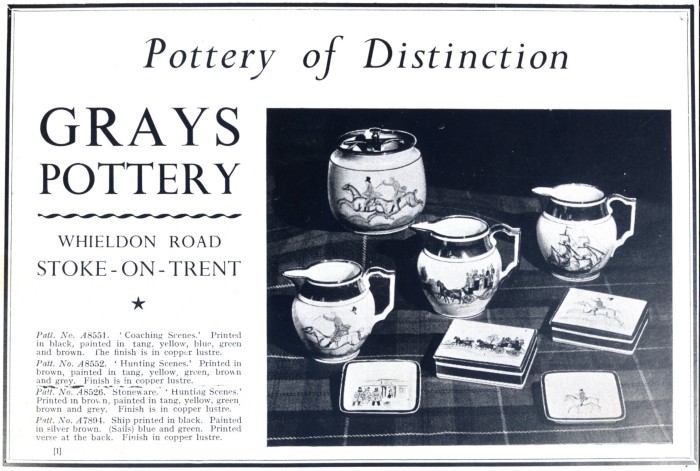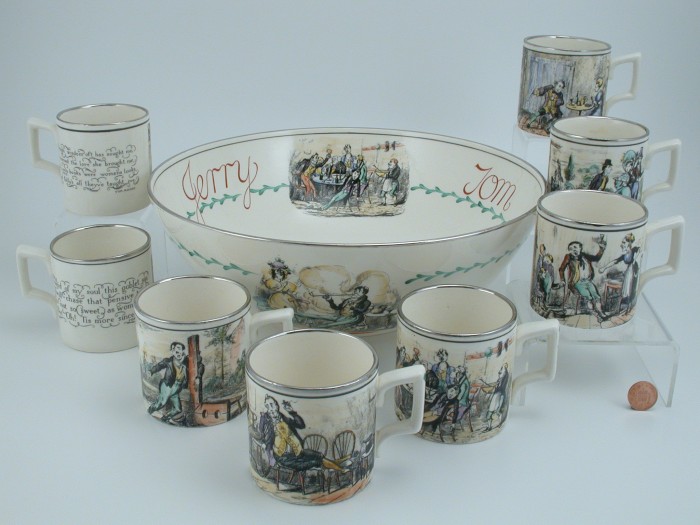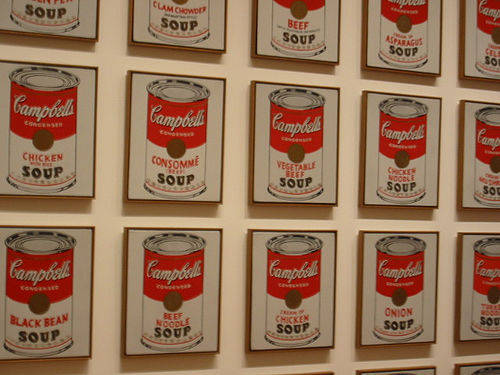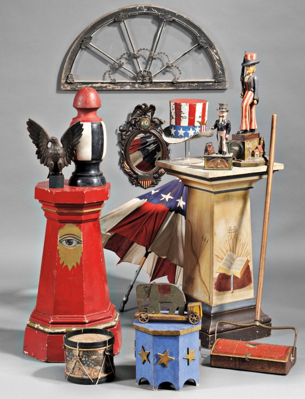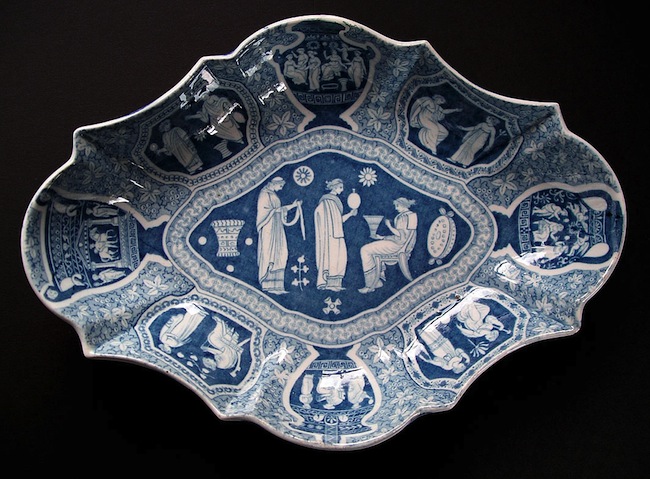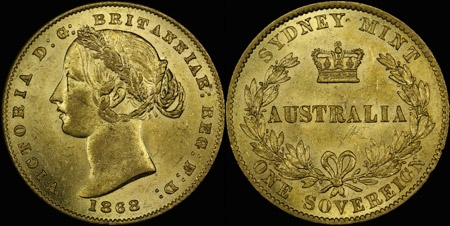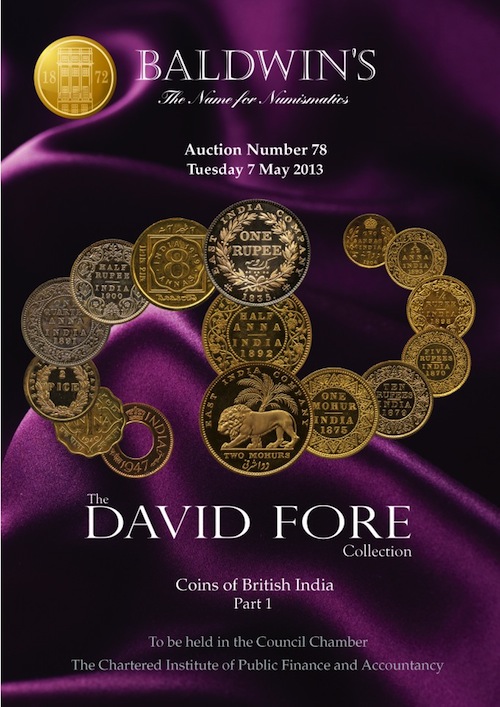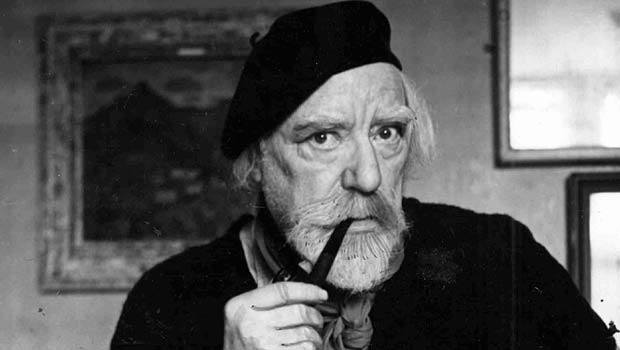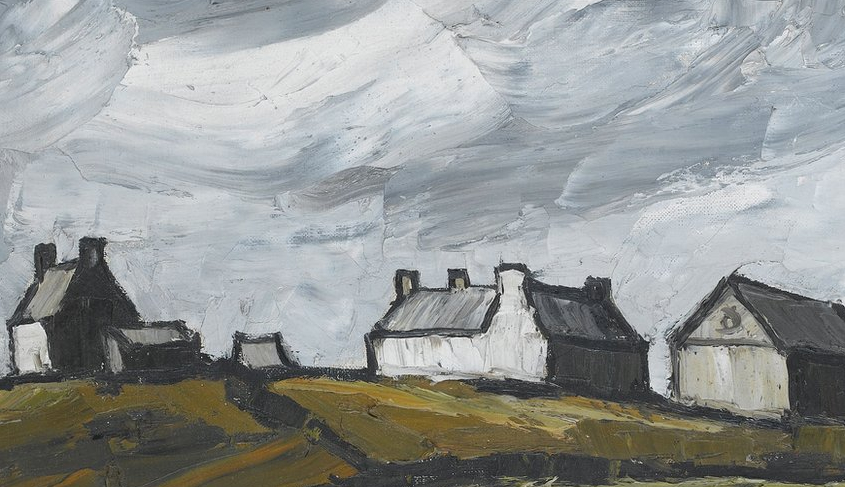Pictured: Pottery Gazette and Glass Trade Review 1948-1949
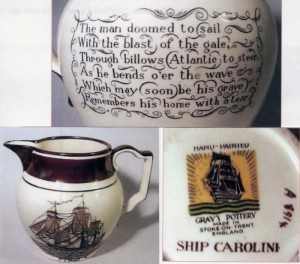 The following list represents the most common verses used by Gray’s Pottery on a wide range of products from the mid-1940s through into the 1950s. Many of the designs were destined for the North American market and examples regularly appear on auction sites in that continent. The first product with a verse is likely to be A7894, created around 1945. A surviving original publicity photograph has the following label:
The following list represents the most common verses used by Gray’s Pottery on a wide range of products from the mid-1940s through into the 1950s. Many of the designs were destined for the North American market and examples regularly appear on auction sites in that continent. The first product with a verse is likely to be A7894, created around 1945. A surviving original publicity photograph has the following label:
Unfortunately, as yet, no example of pattern A7894 has come to light. Which verse it carries is therefore unknown. The first recorded surviving pattern with a verse is A8514, one of several incorporating the sailing vessel Ship Caroline: both a tobacco jar (humidor) and a jug have been recorded in the USA. Many more patterns with verses follow in the A8000, A9000, ‘D’ and ‘S’ series of numbers. Note that some patterns can have several different verses, the best illustrative example being the Tom & Jerry punch sets, pattern A9008, where at least two different verses are used throughout the set.
Gray’s Pottery continued a long tradition of the use of verses on pots, many relating to a nautical theme, and the most useful reference source Sunderland Pottery (5th Edition, revised JC Baker 1984) published by Tyne and Wear County Council Museums contains a comprehensive listing in Appendix IV: Rhymes, Mottoes and Designs. The figures in green in the list below cross-refer to this publication.
Reference Verses and Quotations
The man doomed to sail
With the blast of the gale,
Through billows Atlantic to steer,
As he bends o’er the wave
Which may soon be his grave
Remembers his home with a tear.
Used in patterns: A8514, A8576, A9399, D387
Source: Based on a verse from George Gordon Noel, Lord Byron’s poem The Tear, circa 1807.
THE SAILOR’S FAIRWELL
Far from home across the sea
To foriegn* climes I go,
While far away O think of me,
And I’ll remember you.
Note: Spelling mistake in “foriegn”.
Used in patterns: A8621, A8735, A9281, A9414, A9683, A9688, D1354
Source: Found on early 19th-century English ceramics.
THE SAILOR’S TEAR
He leap’d into the boat,
As it lay upon the strand;
But, oh! his heart was far away,
With friends upon the land,
He thought of those he lov’d the best
A wife and infant dear;
And feeling fill’d the sailor’s breast
The sailor’s eye – a tear.
Used in patterns: A8621, A9398
Source: Found on early 19th-century English ceramics.
The hardy sailor braves the Ocean,
Fearless of the roaring Wind.
Yet his heart, with soft emotion,
Throbs to leave his love behind.
Used in patterns: A8622, A8735, A9283
Source: From Act 1, Scene 1 of John O’Keeffe’s three-act opera The Castle of Andalusia (1782).
OLD TOBEY’S JUG
Fill your cups and banish grief,
Laugh and worldly care despise;
Sorrow ne’er will bring relief.
Joy from drinking will arise:
So pour this full and sup it up,
And call for more to fill your cup.
Used in patterns: A8734, A8827, A8829, A8904, A8930, A9008, A9010 (Dickensian Ladies)
Source: Known from an English pot dated 1808, though the verse probably dates earlier.
Though wisdom oft has sought me,
I scorned the lore she brought me,
My only books were women’s looks,
And folly’s all they’ve taught me.
— Thomas Moore
Used in patterns: A8806, A8829, A9008, A9010 (Dickensian Ladies)
Source: From Irish poet Thomas Moore (1779–1852), The Time I’ve Lost in Wooing.
When this you see, remember me
And bear me in your mind;
Let all the World say what they will
Speak of me as you find.
Used in patterns: A8829, A9434, A9436, A9442, A9865, D115, D440, D573, D603, D612, D1051, D1260, D1265
Source: Found on early 19th-century English ceramics.
Friend of my soul this goblet sip,
‘Twill chase that pensive tear,
‘Tis not so sweet as woman’s lip,
But Oh! ‘Tis more sincere.
— Thomas Moore
Used in patterns: A8829, A8834, A8904, A9007, A9008, A9010 (Dickensian Ladies), A9418, A9685, D1474
Source: Irish poet Thomas Moore (1779–1852), Friend of my Soul—an Anacreontic verse known to have appeared in 1828.
Within this goblet rich and deep,
I cradle all my woes to sleep.
— Thomas Moore
Used in patterns: A9009, A9476, A9680
Source: From Ode XLV of the Greek Odes of Anacreon, translation by Thomas Moore (1827).
Women make men love,
Love makes them sad,
Sadness makes them drink,
And drinking sets them mad.
Used in pattern: A9010 (Dickensian Ladies)
Source: Pre-1870.
“In this jug there is good liquor,
Fit for either priest or vicar;
But to drink and not to spill
Will try the utmost of your skill.”
Used in pattern: A9010 (Dickensian Ladies)
Source: Pre-1692; a common verse applied to country pottery puzzle jugs.
When round the bowl the jovial crew
The early scenes of youth renew,
Though each his favourite fair will boast,
This is the universal toast,
May we, when toil and danger’s o’er,
Cast anchor on our native shore.
Used in pattern: D281
Source: Last verse of the song The Wandering Sailor by Miles Peter Andrews (1779), from the comic opera Summer Amusement.
Let the Wealthy & Great,
Roll in Splendour and State,
I envy them not I declare it;
I eat my own Lamb,
My Chickens and Ham,
I shear my own fleece & I wear it.
I have lawns, I have Bow’rs,
I have fruit, I have flow’rs,
A lark is my morning Alarmer.
So Jolly boys now,
Here’s God Speed the Plough.
Long Life & Success to the farmer.
Used in patterns: D790, D922
Source: Known as God Speed the Plough, likely an anonymous 15th-century poem appearing on 17th-century pottery such as two-handled mugs and lustre plaques.
Gur gile mo leanan
Na’n eal’ air an t’snamh
Na cobhar nu tuinne,
’S e tilleadh bho’n traigh;
Na’m blath-bhainne buaile,
’S a chuach leis fo bharr,
Na sneached nan gleann dosrach,
G a fhroiseadh mu’n bhla’r.
English translation:
Not the swan on the lake,
Or the foam on the shore,
Can compare with the charms
Of the maid I adore;
Not so white is the new milk
That flows o’er the pail,
Or the snow that is showered
From the brow of the vale.
Used in patterns: D1469, D1470A
Source: Gaelic song from Ross-shire, Scotland, written by Professor Ewen MacLachlan, published as Ealaidh Ghaoil in 1875.
Firm united, let us be,
Rallying round our Liberty.
As a band of brothers join’d
Peace and safety we shall find.
Used in patterns: S1560, S1565
Source: From the American patriotic song Hail, Columbia.
Since boxing is a manly game,
And Britons’ recreation,
By boxing we will raise our fame
’Bove any other nation.
Throw pistols, poniards, swords aside
And all such deadly tools;
Let boxing be the Britons’ pride,
The science of their schools.
Used in patterns: S1587, S1588
Source: From the song A Boxing We Will Go (1811) by sports journalist Pierce Egan (1772–1849), included in Boxiana (1829).
SAILORS’ FAREWELL
Sweet, Oh Sweet is that Sensation
Where two hearts in union meet,
But the pain of separation
Mingles bitter with the Sweet.
No known pattern number
Source: Recorded on a Sunderland rolling pin and mug circa 1820–1830.

